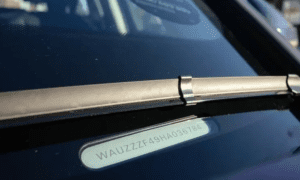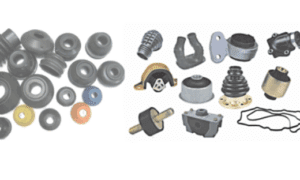Knowledge is power when buying a used car. The knowledge of vehicle history might save you from headaches, surprising expenses, and other issues, not to talk about safety problems. Gone are those days when researching a car’s past required a mountain of paperwork and numerous not-stop calls. Technology has utterly changed how we access and interpret data about vehicle history today.
The Importance of the VIN
Every vehicle has a unique 17-character VIN, a code made up of letters and numbers that take on the role of the car’s fingerprint. This code contains basic information about the car, such as the car manufacturer, model, and year of production, among other specific features. In other words, this code is related to records showing the history of the vehicle by way of accidents, repairs, and changes in ownership.
Using Online VIN Decoders
To utilize these modern tools, simply locate the VIN on the vehicle. It’s usually found on the driver’s side dashboard, the door frame, or in the engine bay. Enter this number into an online VIN decoder like vingurus.com, and you’ll receive a detailed report.
Vingurus.com provides a complete solution suite for the acquisition of detailed vehicle history reports. Users enter a VIN and obtain a load of information opportunely seminal when considering the used vehicle purchase. The Vingurus.com platform is user-friendly and provides an easy-to-use interface for generating reports with all vital details such as accident history, title status, and past ownership. This furthered transparency in the used car market and better-armed buyers to make their decisions more effectively, mitigating some of the risks associated with buying problem-plagued vehicles. What’s more, because data accuracy is ensured due to the fact that the platform retrieves its information from reliable and timely databases, it’s secure in its designation as a valuable resource for any would-be car buyer or enthusiast.
What You Can Learn from a Vehicle History Report
- Accident History: Has this car been in an accident? How serious was the collision, and what repairs were performed?.
- Title Status: Confer that the vehicle title is clean. Avoid the cars whose titles have been tagged salvage, rebuilt, or flood-damaged.
- Odometer Readings: Check that the mileage is accurate and has not been tampered with.
- Ownership History: Know the number of previous owners, the history of lease, private ownership, fleet vehicle, etc.
- Check for any recalls: Check to see if there are any outstanding recalls that still need attention.
- Maintenance Records: A few reports contain the service and maintenance history, which indicates how well the car has been kept.
Why Reliable Sources Matter
Not all vehicle history reports are created equally. For the report to be valid and as current as possible, they must be channeled through various trusted services. Reliable platforms obtain data from official data providers. They update information in their databases quite frequently.
The Future of Vehicle History Checks
And as technology develops further, the methods will be even more sophisticated to confirm what happened in the history of a car. Soon, with artificial intelligence using machine learning algorithms, it should be able to predict possible issues in the future, giving the buyer an even better overview of what they are buying.
Conclusion
In the modern digital era, it has actually never been easier to be an informed car buyer. Furthermore, with the modern Techie ways of checking on a car’s history, one is empowered with sound decision-making as he evades those vicious pitfalls that would lead to buying a lemon car. Use good online VIN decoders as such ones that help you unveil information in less time, save you from spending fortunes, and keep your purchase devoid of stress. Welcome the challenges of these technological advancements as bridges that give assurance your next vehicle will be a dream come true and not one nightmare waiting to occur.
Read More From Techbullion



































